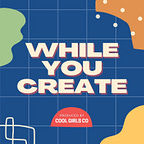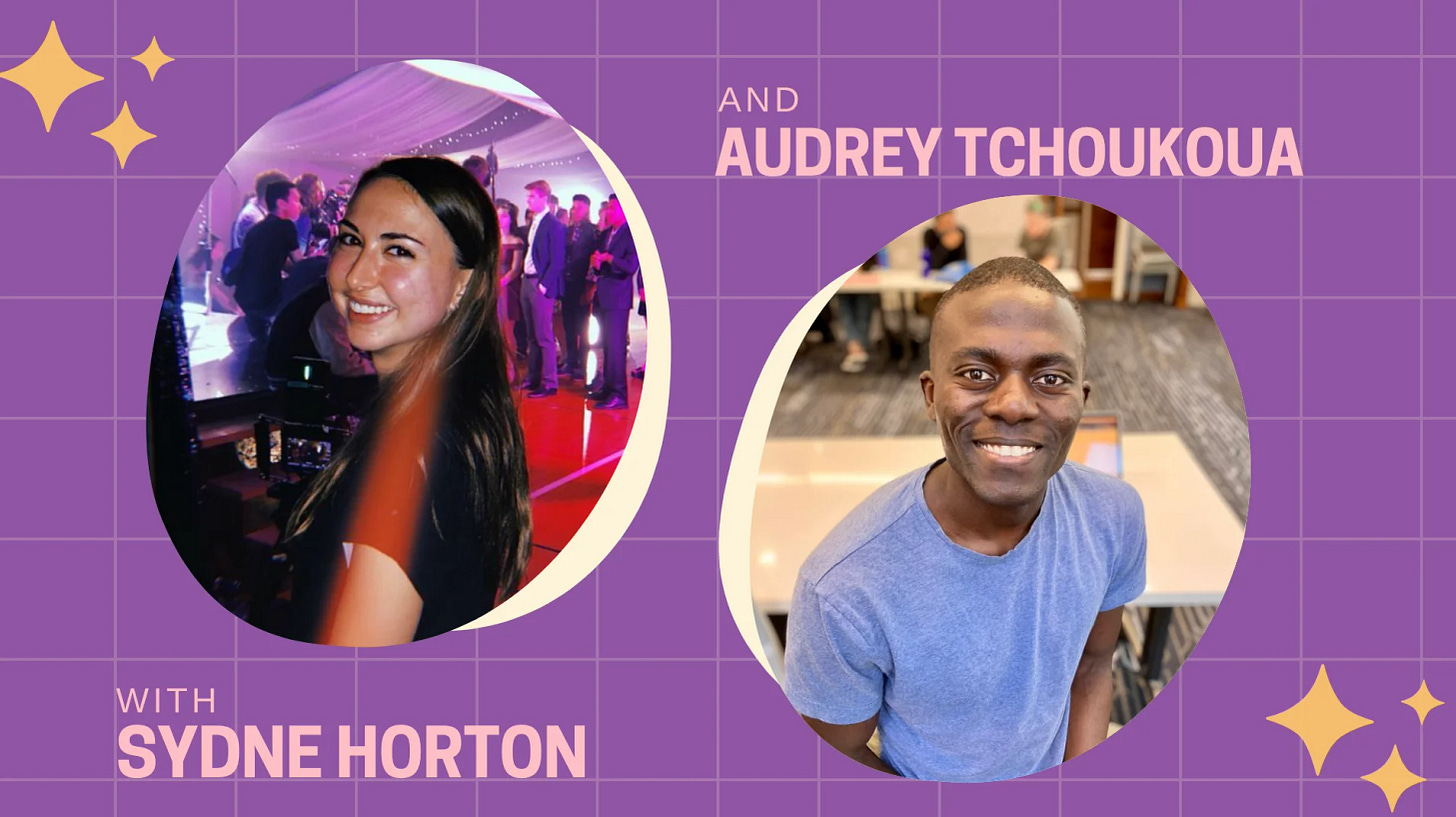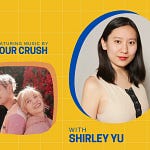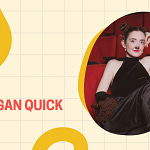This one may be a slight misnomer... because duh, of course representation matters! Instead, we talk more about belonging with director Sydne Horton (@sydnehorton), as well as inspiring the next generation of creators with actor and educator Audrey Tchoukoua.
____________
Sydne Horton is an LA-based director originally from Carmel, Indiana. She is a proud midwestern at heart and as a queer creator, she commonly finds herself exploring queer narratives and landscapes. Currently, she is a Director’s Circle Mentee in Women In Film’s 2022 Mentorship Program. Her short films have had their world premieres at LA Shorts International Festival and Outfest Los Angeles. Other festival appearances include Inside Out Toronto, Tallgrass, Aesthetica Short Film, Melbourne Queer Film Festival, Out on Film Atlanta, and more. Specifically, her film META has screened with
over 30 festivals while ending its festival run with a 3-month exhibit at Seattle’s Museum of Pop Culture. Horton, who had her break into the industry as a Television Academy Foundation Intern, graduated from Columbia College Chicago with a Bachelor’s degree in Television Directing and Production and has gained professional production experience working with Blumhouse, Netflix, FX, HBO Max, and Nickelodeon. Additionally, she was selected as 1 of 5 global competitors for 2021’s Inside Out Toronto’s Pitch Please Competition with her film The House Sitters. Navigating the world as an adopted and queer identifying individual, Sydne formed a strong connection with the film E.T. at an early age and aspires to direct and tell stories that bring alienated groups together both literally and figuratively.
Adreyauna from Ink to Prosperity (@inktoprosperity) hosts a moment of inspiration.
WHILE YOU CREATE is an audio show brought to you by Cool Girls Collective — we’re a community shaping convos around creativity. You can find us at coolgirls.co and on socials @coolgirlscollective. Production music is by LoHi5 (@lohi.5.music).
Episode Transcript
Ruth: When I was in college, I took a film class called German Queer Cinema, where we watched and analyzed movies like Nosferatu and The Cabinet of Dr. Caligari. At the surface level, these were horror films that centered around one monster or quasi-human-creature quietly terrorizing a community. They came about during German Expressionism, when the threat of the first World War loomed over the country. Feelings of isolation, disillusionment, and distrust are palpable in these films. As my college course title suggested, there’s a type of “queering” that happens when a group of people decide that something, or someone, is not one of them. By the time of World War II, Germany was mass producing cinema as propaganda, shelling out Us v. Them narratives that would come to bolster an antisemitic agenda. It’s wild to think that movies — something that’s supposed to entertain — can also influence how we feel about everything around us. And if we approach it in the wrong way, our art can have dangerous consequences. But also, isn’t this why we make art in the first place? Because if we approach it in the right way, we have the opportunity to change narratives, for the better.
Sydne: I always kind of felt a sense of otherness, and I just didn't have the words to express what I was feeling. But I found myself always attracted to, I guess, narratives that involved people feeling kind of detached from other people and feeling like an outsider.
Ruth: This is Sydne Horton, an LA-based director who often channels her identity and personal experiences in her films, particularly in the horror genre.
Sydne: I realized I wanted to continue making stories to kind of express what I was feeling and how I viewed the world and kind of what it's like to be an adopted individual, a queer individual, or feel like a sense of otherness, which is why I think I become specifically attracted various mediums in horror.
Ruth: In the past, this “otherness” was often depicted as qualities meant to scare off others. But within the last decade or so, there have been many artists, including Sydne, determined to make someone’s “otherness” feel like it belongs. I know the title of this episode is “Does Representation Matter?” but maybe representation is just the first step. Of course it matters. Belonging, on the other hand, especially in art, is a much more interesting story to tell. Before we get into it, let’s spend a moment with Adreyauna from Ink to Prosperity.
Adreyauna: Hello creative. Let's take an inspiration break. We're going to feel into our environment and be inspired by what's around us in this very moment. No matter the mess, no matter the cleanliness, or if you're outside. So go ahead and use your five senses to really tap into what's pulling your attention. Maybe you're witnessing a color for the first time, really giving it some attention and the depth of that colo. Maybe there's textures or scent that is grabbing your attention, or perhaps you are being drawn to a shirt on the floor and it's really sparking you. And just take in this moment to notice how your environment is supporting you and feeding your inspiration. I hope you enjoy these moments and know that no matter where you are, there is always, always, always room for you to be inspired.
Ruth: Now, let’s jump back to it. Sydne grew up in Indiana and she first felt a spark for filmmaking in high school after showing a movie she made at a local film festival. She later studied television and directing at Columbia College Chicago and landed an internship with the Television Academy. Then later production jobs at Blumhouse, Nickelodeon, and Netflix, to name drop a few. On the side though, Sydne makes films in Los Angeles. One of her notable ones is a horror short called Meta.
Sydne: Meta I think is one of those pieces that is forever going to be something I look back up on about just being so instrumental about my directing career and what I want to continue making when I approach storytelling. I haven't worked on anything, at least so far, that has felt so important to me and the message behind it since it was a film that not only my writer came to me expressing they needed to use as a piece to kind of share with the world that they were going to continue transitioning genders themselves and that that's okay. And that’s who they are and who they’ve always been.
Ruth: Set at a high school prom, Meta explores the emotional and physical transformations of the trans masculine experience, as well as trans dysphoria. It screened at over 30 festivals, ending its run with a 3-month exhibit at Seattle’s Museum of Pop Culture. Sydne’s most recent project, The House Sitters, is currently making its rounds at festivals. Even if she isn’t the one writing the scripts, Sydne tries to stay true to her voice as an artist with every film she directs.
Sydne: I tend to have the working relationship where I will be like, I want to be able to give some notes, obviously on the script. This is what I think works, what doesn't. I'll ask specifically for The House Sitters, it initially was not a queer horror. It was just a horror with female leads. So I asked the writer, why are they straight? And he's like, oh, I don't know. I was like, you're a gay writer, I'm a queer creator. Why don't we have a queer narrative in here? So as we workshopped through it, it became queerer as it went. Our ghost was even in the backstory, a queer ghost, who is also in the house. Spoiler. And the woman that's being housesitted for is queer. So it's just being like, where can we add diversity that feels organic? And asking writers, why is it that way? And seeing what they have to say. I just don't think there's any time anymore for things that aren't diverse. We've done enough of that. So if I can have any say or any pull in bringing in queerness to the story or people of color, I’m going to. I'm finally getting to a point where I can work with a casting director, which is cool. So it's like, let's see how diverse we can get. Not just to check boxes, but let's get more representation up there.
Ruth: Sydne hopes the whole entertainment industry will adopt this mission of adding diversity where it feels organic, especially at film festivals. Festivals screen movies in “blocks,” or sections where titles are grouped together usually by theme or style. In recent years, it has become popular to host blocks like “Women in Film” or “Queer Cinema,” categorizing stories from underrepresented voices.
Sydne: Yes, it's awesome to be in the festival circuit, and I love the queer content. I just wish and I'm hopeful for a future where, we're not trapped in, if you want to watch queer horror, you have to go to this block. I want it to just be that's a horror film, and, oh, there happens to maybe be a queer person in there. And like I said, for the most part, I'm not trying to do queer narratives where it's like, guess what? They're queer. And I'm just going to keep telling you that they're queer. It's like, I just want that to be a part of the story, too. Even the mainstream festivals, as I've checked on Film Film Freeway, and other sites. They're starting to now be like, oh, and a category is Queer Films because you can submit, oh, let me submit to the narrative or queer. And I'm like, well, technically it is a narrative, but I guess it's queer? And having that weird, your mouse going over each one, and you're like, which one do I submit to? So cool that, yes, they’re aware that people want diversity and maybe they feel the pressure of like, oh, it looks bad if I don't have that, kind of performative almost. But I would like it to just be part of mainstream media as a whole. I'm hopeful that in the next five to ten years we can have less performative diversity movements and more organic and actually wanting that, not just because they feel like that's what should be happening. So, I mean, I think in five years, not a ton is going to change. But I think ten, we're hopefully in stronger strides towards making our world a better reality and more realistic visually on screen and once again just not performative.
Ruth: Though it’s a difficult task and progress is certainly not linear, Sydne considers the journey of telling authentic stories from a place of inclusivity a worthwhile pursuit.
Sydne: I'm learning to use my voice as a platform to kind of fight for the community and hopefully continue to help other people feel accepted and loved and comfortable enough to share who they are with the world, however they identify. It’s helped my family members who were kind of questionable of the queerness come around and be like, no, we need to fight for queer rights. We need to fight for queer people. And everything that's been happening around the world with, you know, what it's like to be queer right now, and if they should be allowed to be queer and teachers not being able to share the information. To see my family be like, oh, that's not okay, is honestly a huge stepping stone and I definitely owe that to, like, creating Meta and House Sitters and having an environment and community where they're fighting too.
Ruth: On the other side of the country in New York City, Audrey Tchoukoua, an actor and educator is also working to foster a sense of belonging, but for a new generation of creators. Here he is.
Audrey: To be able to inspire awe in others, give them something that shifts their perspective or makes them think differently than before they saw this piece, before they interacted, before you shared this moment. I think that's what excites me about the arts. And it also just happened to be something that excites me about education.
Ruth: So for the next episode of While You Create, we're doing something a little different and special. Since it’s coming at the end of the year, we thought it would be nice to reflect and manifest. And we want to hear from you! Yes, you, listening to this right now. What are your roses, thorns, and buds? Think of roses as highlights and thorns as lowlights from this past year. Buds are what you’re looking forward to in the new year. So grab your phone, your computer, hey if you have a mic, go for it! Record a voice memo in 60 seconds or less telling us what made 2022 meaningful for you, what made it not so great, and what excites you about the big ‘ol 2023. Then, send it to us at hello@coolgirls.co and it just might appear in the next episode. Sound good? Great, remember Roses, Thorns, and Buds. As a trained and dedicated actor, Audrey found himself in a difficult position when COVID shut down theaters in New York City. After a little bit of soul searching, he decided to go back to school and get his Master’s in education at Columbia University. Audrey now teaches 12th grade social studies at an international school in Union Square made up of around 400 students newly arrived in the States.
Audrey: All of them are learning English. That's the one thing that they have in common because they speak 30 languages combined. For many of these kids, English is not their second language. That's why in the field, we're moving away from calling it English as a Second Language to English for Speakers of Other Languages or English Language Learners or Multilingual Learners. Because they come from communities and backgrounds and cultures where they already speak three languages or four languages. So we want to honor that. So my experience working with these students is not only bringing my own experience and sort of leveraging that as a connecting point, but also to honor their experiences, to honor their cultures and where they're coming from. And I can base it on my own experience and say, hey, I was just like you.
Ruth: Audrey was born and raised in Cameroon. He moved to the US just outside of Washington, DC when he was 15 years old to reunite with his mom, who was already living there, as well as finish high school.
Audrey: When we came to the US, I was living with my mom and my brother. My mom was renting a room in a two bedroom apartment, and we were all sleeping in one bed. That's where we started, all sleeping in that one bed. And then we eventually got our own apartment, which was another two bedroom. We got two beds now, but we're in the same room. Two beds. My brother and I were sharing one bed, my mom was in another bed, and then she was renting out the other room just to make ends meet. And then we moved from that to getting our own apartment, where it was a two bedroom. Mom had a room, my brother and I had our room. And then we moved from that to getting our own apartment. I went to college, and then my brother had his own room now. And so that was the evolution. So I can use that as a tool. I can leverage the experience and say, hey, what you're going through, you're not alone. I’ve gone through that.
Ruth: It’s funny hearing Audrey remember his journey as an immigrant through phases of beds. When my family first moved to the States, my sister and I slept on air mattresses before upgrading to a better mattress but still on the floor. And then eventually we got bed frames, though they were the IKEA ones. It wasn’t until college that I felt like I had a real bed, which was ironic because everyone else thought they were serious downgrades from their beds at home. When I graduated and could finally afford to buy my own bed, I weirdly felt this huge sense of accomplishment every night. Like I was tucking myself into the American Dream. One big thing that is different for Audrey and me though is language. In my home country of the Philippines, English is considered a national language, so I knew how to speak it from an early age. But for many immigrants like Audrey and his students, language is a huge barrier, especially when you’re auditioning for theatrical productions as a high schooler.
Audrey: I felt like my English was just so awful. And I was in the room full of these native speakers of English who were just like, to me, it sounded like they were just rapping in English. And I was so terrified. I was pausing a lot. I was stuttering a lot. I was making up pronunciations a lot. I was just making it up. Like when you talk about stepping out of your comfort zone, oh, my goodness, that is the most out of my comfort zone. I felt completely just vulnerable. And I felt like people were laughing at me or pointing at me or saying, whispering amongst themselves, oh, you know, he doesn't, this is not competition. Yeah, he may be a good singer, but then he's not going to get the part because he can't say the lines. And I felt after that call back, I felt so discouraged. Oh, my goodness, I'm so disheartened that maybe I wouldn't get to be in this thing. But to my surprise, I got cast in this. I had a small part in the ensemble, and I got to understudy one of the supporting roles as well. My family was there to see it. This was like the first play my mom had ever seen in her life. It’s like any high school production, it’s terrible. But that's not the point. The point is not the production value. It's not the performance quality. It's the fact that you have a bunch of kids who are stepping out of their comfort zones, who are trying something new. They're trying to figure out exactly where they fit in this world, in this society. What are they good at? What are their aptitudes? For some kids will for some kids, it will just click. Like they'll say, you know what? This is the thing. This is the thing that I'm good at. And that was the case for me.
Ruth: The ability to continue trying something new is what also led Audrey to his teaching career. While he loves this new opportunity to inspire students, they happen to inspire him, too.
Audrey: And what I love about working with immigrant youth is that there's this drive. They may not understand how to go about it, how to pursue it, how to express it, even sometimes, but they know that in the words of Alexander Hamilton, they can't throw away their shot. They know they think to themselves, I'm so fortunate to be here because I know people in my native communities would kill to have this opportunity. So I'm going to try to make the most of it. And so my job is to just give them the tools, talk to them about opportunities and sort of just guide them through that. And that's really why I wanted to work with 11th and 12th graders for that opportunity, to just walk them through what their options are.
Ruth: When it comes to honing in on these passions — creative or otherwise — Audrey imagines it in true theatrical style.
Audrey: Think about it like in terms of notes on a scale. Musical scale. It's the same notes that everyone is playing. Really, when you think about it, it’s just a different key. The tuning is different, maybe, but essentially we're all playing the same tune. We're just arranging them differently and they sound beautiful. But it also matters who is playing the instrument. So who was playing that guitar? Who was playing that piano? It matters. So you can see yourself reflected in that art piece. One of my music teachers in high school would say often that she's not trying to make us the next Philip Glass, or you can insert a great musician there. So you're not trying to make us into the next phenomena, but it's about giving you the tools to express yourself and giving you the space and the room, the opportunity to experiment without repercussions, without consequences, without shame. This is the experiment. This is for you to just play around. So what I would say to my kids, and I already started instilling this in them, is you have to go out there and pursue your dream.
Ruth: And maybe that dream is making movies. Or pursuing higher education. Or even just having your own bed. Whatever it may be, know that the rest of us want to hear your story. Sydne Horton is a director based in Los Angeles. You can find her on Instagram @sydnehorton and at sydnehorton.com. Audrey Tchoukoua is an actor and educator in New York. He’s not on social media but was gracious enough to share his email with you all at audreytchoukoua@gmail.com. Special thanks to Adreyauna at Ink to Prosperity. Ink to Prosperity a space that provides personal & career development from a spiritual perspective. You can learn more at inktoprosperity.com or give her a follow on Instagram @inktoprosperity. While You Create is an audio show brought to you by Cool Girls Collective—we’re a community shaping convos around creativity. You can find us at coolgirls.co and on Instagram @coolgirlscollective. Production music is by Lohi5. You can listen more on Instagram @lohi5.music. I’m your host Ruth, and I’ll catch you in our final episode of 2022! Can you believe it? And don’t forget to send your voice recordings, your Roses, Thorns, and Buds, to hello@coolgirls.co for an opportunity to be included in the next episode! Kthanksbyeee!











